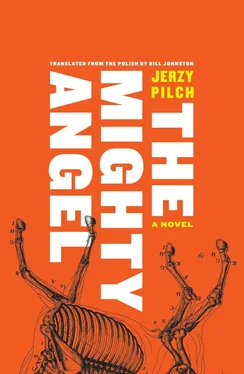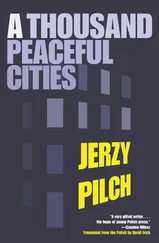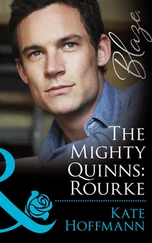What the doctor’s nights and mornings were like I know only too well — the nightmares were excessive, the voices too loud, the specters too palpable. The undoubtedly ghastly epic must have been impossible to accept, to drink away, or to endure, for in his despair and his helplessness, and seeing that the Homeric narrative of his ordeal showed no signs of coming to an end, Swobodziczka reached for the ultimate means of expression. He reached for morphine, with the aim of easing his pain (for it was certainly not with the aim of intensifying his experiences); he reached for morphine, though he was fully aware that, while after the first injection his sufferings would truly (though only seemingly) disappear, the first injection would after a certain time, a short moment, truth be told immediately, begin to demand a second injection, while after the second dose, or at the latest after the third, there would come nightmares even more excessive than before, there would be even louder voices, and the palpable specters would begin to close in on him in an ever tightening circle. Dr. Swobodziczka knew the simple yet inexorable mechanics of total collapse. He was an excellent physician; he was certain he would get by, and this time he made a bet with himself (on whether he would get by), and that bet he lost.
In those days my mother was a young pharmacist of the Augsburg Lutheran denomination; she often worked the night shift in Wisła and at the darkest hour, at three or four in the morning, she would be woken by a prolonged ringing of the bell, a desperate knocking and the ritual exclamation:
“Miss! Miss! I have an acute case requiring immediate intervention! It’s a matter of the utmost urgency!”
Behind the glass door the thickset figure was swaying to and fro, the dog crouching at his feet. With trembling fingers Dr. Swobodziczka would hand over a prescription bearing a magic spell that would bring relief, or maybe even euphoria: “Morph. Hydr. 002.” His voice would break naturally; he had no need whatsoever to feign convulsive speech.
“Miss. . Comrade First Secretary Władysław Gomułka is as we speak present at the Castle; he’s had a sudden attack of the stomach cramps, he’s in great pain, our head of state is in agony, and I’ve been summoned. . You understand, Miss, it’s a matter of national importance. .”
The first time, and maybe even the third time this happened (“Miss, Prime Minister Józef Cyrankiewicz is present at the Castle as we speak, and he’s had a sudden attack of the stomach cramps. .”), there was a modicum of plausibility in this spectacular pretext. President Mościcki’s prewar castle really did serve as a country residence for dignitaries of the highest level; many a time at dusk we would see a cavalcade of Volgas and Chaykas moving slowly down the road toward the Kubalonka Pass, the distant lights playing across the armor-plated bodywork. In the close presence of the leadership (improbable walking parties crossing wooded hillsides in the misty morning — representatives of the central authorities and their companions, setting out to pick mushrooms), in this close presence, then, there was a certain plausibility, and even in the sudden indisposition of the prime minister or first secretary (though according to doctrine they were superhuman, that is to say incorporeal), but when it transpired before long that according to Swobodziczka, Gomułka and Cyrankiewicz (the doctor rarely stooped to lower ranks) must constantly have been staying at the Castle and, in addition, must have suffered incessant stomach cramps by turns, before long, right away even, everything became clear. Though with the passage of time Swobodziczka himself ceased striving for any sort of verisimilitude in his version of events; he automatically repeated his formula about the Castle, the dignitary, and the stomach cramps, handed over the prescription, took the ampoules, sat on a nearby bench in the middle of the town square, opened his bag, took out a needle, stuck it through his trouser leg at the level of his thigh and through his pants administered a dexterous and discreet injection into the muscle. The great Dr. Swobodziczka — Dr. Morphine, Dr. Codeine, Dr. Moonshine, Dr. Nobody.
To this day the inhabitants of Wisła sing hymns of praise to his medical expertise, to this day one can hear stories of epidemics he held in check, fearful maladies he drove away without a trace, unerring diagnoses he rendered every time. His soul was burning to nothing, his body was weakening, his speech was ever more indistinct, yet his medical abilities remained unaffected. The blaze of his addiction consumed everything within him except his skill. He would have the greatest difficulty putting on his stethoscope, but he would hear with absolute clarity the rat-like squeak of the disease hidden in the labyrinth of the innards; his hands would shake as he wrote the prescription, but he would prescribe exactly what was needed. When he referred someone to the hospital, the hospital was essential; when he recommended antibiotics, the antibiotics worked; when he instructed a person to collect oak bark, boil it, and drink the decoction each day for six months, everyone knew the half-year course of treatment would be effective. He was a genius when it came to the chronology of a sickness. In seven days there’ll be an improvement, in ten days it’ll go away, in two weeks you’ll be on your feet again, he would say, and it would happen as he said: in seven days there would be an improvement, in ten it would go away, in two weeks you’d be on your feet again. When Swobodziczka retired (and his retirement lasted a very short time) and his pre-mortal visit to this world was reduced to daily visits to the Piast hostelry, even there lines would form to his table. He would appear at 7 A.M. sharp in the company of the black alsatian, drink a restorative double, wash it down with sips of beer, pour a goodly measure of the latter into a tin bowl for the dog keeping watch under the table, raise his hand and, with a patrician gesture, would permit the first patient to approach.
I fell ill with everything. I fell ill constantly. I fell ill inexorably. I fell ill passionately. I adored Dr. Swobodziczka’s visits; I would breathe in the smell of the medications and the alcohol, and revel in the consternation the doctor inevitably generated among the inhabitants of the house. He would shrug his sheepskin coat off his shoulders, light a cigarette in the bedroom after my mother had carefully aired it, put on his stethoscope, and set about examining me. Breathe. Don’t breathe. Breathe deeply. He would inhale clouds of smoke and cough the resonant, grating cough of an inveterate smoker.
“How do you like that,” he would say, “a cough, another cough.” “But he’s not coughing, doctor,” my mother would interject, white as a sheet and on the verge of seizure. “Not him, me. I have a cough,” Swobodziczka would retort without interrupting his examination. “I have a cough and I’ve no idea what to do about it. It’s not showing any signs of going away.” He would remove the stethoscope with a decisive gesture, go to the table, and take out his prescription pad.
“As for him, he’ll have a cough in two days. In two days there’ll be a cough. And seven days after that, in other words nine days from today, the cough will be gone. How old is he?” “Nine,” my mother would say, relief clearly audible in her voice. The doctor peered at me. “Nine years old, nine years old. It’s high time to be looking around and thinking about an occupation. Tell me, Jerzy, which do you prefer, Catholic girls or Lutheran girls?” “Catholic girls,” I said without hesitation, finally given wings by an authorized opportunity to talk about women. “Catholic girls, especially Urszula and Aldona.” “You’re absolutely right,” Dr. Swobodziczka responded with utter seriousness, and a moment later added a further mysterious sentence, in which what appeared to be the critical phrase—“ecumenical desires”—I not only did not understand but barely even heard, since my mother pounced like a mountain lion toward the table, concealing me behind her body and drowning out the doctor’s words in a hysterically cordial invitation to pass into the kitchen, from where, by the by, a while later there came the mythical clink of glasses being taken from the dresser.
Читать дальше












